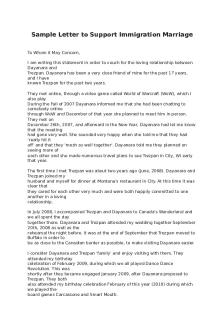Immigration Rules Appendix FM [Limited Leave to Remain for Partners] PDF
![Immigration Rules Appendix FM [Limited Leave to Remain for Partners]](https://pdfedu.com/img/crop/300x450/m52y1mjzd52e.jpg)
| Title | Immigration Rules Appendix FM [Limited Leave to Remain for Partners] |
|---|---|
| Author | soumaia djellak |
| Course | Law |
| Institution | City University London |
| Pages | 8 |
| File Size | 235.5 KB |
| File Type | |
| Total Downloads | 15 |
| Total Views | 165 |
Summary
law lecture notes...
Description
Immigration Rules Appendix FM [Limited Leave to Remain for Partners] SUITABILITY [Always Refused] S-LTR.1.2. The applicant is currently the subject of a deportation order. S-LTR.1.3. The presence of the applicant in the UK is not conducive to the public good because they have been convicted of an offence for which they have been sentenced to imprisonment for at least 4 years. S-LTR.1.4. The presence of the applicant in the UK is not conducive to the public good because they have been convicted of an offence for which they have been sentenced to imprisonment for less than 4 years but at least 12 months. S-LTR.1.5. The presence of the applicant in the UK is not conducive to the public good because, in the view of the Secretary of State, their offending has caused serious harm or they are a persistent offender who shows a particular disregard for the law. S-LTR.1.6. The presence of the applicant in the UK is not conducive to the public good because their conduct (including convictions which do not fall within paragraphs S-LTR.1.3. to 1.5.), character, associations, or other reasons, make it undesirable to allow them to remain in the UK. S-LTR.1.7. The applicant has failed without reasonable excuse to comply with a requirement to- (a) attend an interview; (b) provide information; (c) provide physical data; or (d) undergo a medical examination or provide a medical report. [Normally Refused] S-LTR.2.2. Whether or not to the applicant’s knowledge – (a) false information, representations or documents have been submitted in relation to the application (including false information submitted to any person to obtain a document used in support of the application); or (b) there has been a failure to disclose material facts in relation to the application. S-LTR.2.4. A maintenance and accommodation undertaking has been requested under paragraph 35 of these Rules and has not been provided. S-LTR.2.5. The Secretary of State has given notice to the applicant and their partner under section 50(7)(b) of the Immigration Act 2014 that one or both of them have not complied with the investigation of their proposed marriage or civil partnership. S-LTR.4.2. The applicant has made false representations or failed to disclose any material fact in a previous application for entry clearance, leave to enter, leave to remain or a variation of leave, or in a previous human rights claim; or did so in order to
1
obtain from the Secretary of State or a third party a document required to support such an application or claim (whether or not the application or claim was successful). S-LTR.4.3. The applicant has previously made false representations or failed to disclose material facts for the purpose of obtaining a document from the Secretary of State that indicates that he or she has a right to reside in the United Kingdom. S-LTR.4.4. The applicant has failed to pay litigation costs awarded to the Home Office. S-LTR.4.5. One or more relevant NHS bodies has notified the Secretary of State that the applicant has failed to pay charges in accordance with the relevant NHS regulations on charges to overseas visitors and the outstanding charges have a total value of at least £500. ELIGIBILITY - RELATIONSHIP REQUIREMENT GEN.1.2. “partner” means- (i) the applicant’s spouse; (ii) the applicant’s civil partner; (iii) the applicant’s fiancé(e) or proposed civil partner ; or (iv) a person who has been living together with the applicant in a relationship akin to a marriage or civil partnership for at least two years prior to the date of application… E-LTRP.1.2. The applicant’s partner must be- (a) a British Citizen in the UK ; (b) present and settled in the UK ; or (c) in the UK with refugee leave or as a person with humanitarian protection. E-LTRP.1.3. The applicant must be aged 18 or over at the date of application. E-LTRP.1.4. The partner must be aged 18 or over at the date of application. E-LTRP.1.6. The applicant and their partner must have met in person. E-LTRP.1.7. The relationship between the applicant and their partner must be genuine and subsisting. E-LTRP.1.8. If the applicant and partner are married or in a civil partnership it must be a valid marriage or civil partnership, as specified. E-LTRP.1.9. Any previous relationship of the applicant or their partner must have broken down permanently… E-LTRP.1.10. The applicant and their partner must intend to live together permanently in the UK… E-LTRP.1.11. If the applicant is in the UK with leave as a fiancé(e) or proposed civil partner and the marriage or civil partnership did not take place during that period of leave, there must be good reason why and evidence that it will take place within the next 6 months. 2
E-LTRP.1.12. The applicant’s partner cannot be the applicant’s fiancé(e) or proposed civil partner , unless the applicant was granted entry clearance as that person’s fiancé(e) or proposed civil partner. ELIGIBILITY - IMMIGRATION STATUS REQUIREMENTS E-LTRP.2.1. The applicant must not be in the UK- (a) as a visitor; or (b) with valid leave granted for a period of 6 months or less, unless that leave is as a fiancé(e) or proposed civil partner… [[NOTE: DON’T NEED TO SATISFY APPENDIX FM FROM HERE ONWARDS IF EX.1 APPLIES]] E-LTRP.2.2. The applicant must not be in the UK – (a) on immigration bail, unless: (i) the Secretary of State is satisfied that the applicant arrived in the UK more than 6 months prior to the date of application; and (ii) paragraph EX.1. applies; or (b) in breach of immigration laws (except that, where paragraph 39E of these Rules applies, any current period of overstaying will be disregarded), unless paragraph EX.1. applies. ELIGIBILITY - FINANCIAL REQUIREMENTS E-LTRP.3.1. The applicant must provide specified evidence, from the sources listed in paragraph E-LTRP.3.2., of- (a) a specified gross annual income of at least(i) £18,600; (ii) an additional £3,800 for the first child; and (iii) an additional £2,400 for each additional child; alone or in combination with (b) specified savings of(i) £16,000; and (ii) additional savings of an amount equivalent to 2.5 times the amount which is the difference between the gross annual income from the sources listed in paragraph E-LTRP.3.2.(a)-(f) and the total amount required under paragraph E-LTRP.3.1.(a); or (c) the requirements in paragraph E-LTRP.3.3.being met [partner has access to certain benefits and shows that they can accommodate themselves without recourse to public funds], unless paragraph EX.1. applies. In this paragraph “child” means a dependent child of the applicant or the applicant’s partner who is(a) under the age of 18 years , or who was under the age of 18 years when they were first granted entry under this route;
3
(b) applying for entry clearance or leave to remain as a dependant of the applicant or the applicant’s partner, or is in the UK with leave as their dependant; (c) not a British Citizen or settled in the UK; and (d) not an EEA national… E-LTRP.3.2. When determining whether the financial requirement in paragraph ELTRP. 3.1. is met only the following sources may be taken into account(a) income of the partner from specified employment or self-employment; (b) income of the applicant from specified employment or self-employment unless they are working illegally; (c) specified pension income of the applicant and partner; (d) any specified maternity allowance or bereavement benefit received by the applicant and partner in the UK or any specified payment relating to service in HM Forces received by the applicant or partner; (e) other specified income of the applicant and partner; (f) income from the sources at (b), (d) or (e) of a dependent child of the applicant or of the applicant’s partner under paragraph E-LTRP.3.1. who is aged 18 years or over; and (g) specified savings…. E-LTRP.3.4. The applicant must provide evidence that there will be adequate er Appendix FM-SE me 2. In respect of salaried employment in the UK…, all of the following evidence must be 1. e, provided: (a) Payslips covering: (i) a period of 6 months prior to the date of application… (b) A letter from the employer(s) who issued the payslips at paragraph 2(a) confirming: (i) the person’s employment and gross annual salary; (ii) the length of their employment; (iii) the period over which they have been or were paid the level of salary relied upon in the application; and (iv) the type of employment (permanent, fixed-term contract or agency). or (c) Personal bank statements corresponding to the same period(s) as the payslips at paragraph de 2(a), showing that the salary has been paid into an account in the name of the person or in the name of the person and their partner jointly…
(
ph 4. In respect of a job offer in the UK (for an applicant’s partner… GEN.1.6. For the purposes of paragraph … E-LTRP.4.1.(a)… the applicant must be a national of Antigua and Barbuda; Australia; the Bahamas; Canada; Grenada; 7. In respect of self-employment in the UK as a Barbados; partner, as Belize; a sole trader or inDominica; a franchise… Guyana; Jamaica; New Zealand; St Kitts and Nevis; St Lucia; St Vincent and the Grenadines; Trinidad and Tobago; or the United States of America 11. In respect of cash savings the following must be provided: (a) personal bank statements showing that at least the level of cash savings relied upon in the application has been held in an account(s) in the name of the person or of the person and their of partner jointly throughout the period of 6 months prior to the date of application.
a
(b) A declaration by the account holder(s) of the source(s) of the cash savings.
4
(c) have an academic qualification which is either a Bachelor’s or Master’s degree or PhD awarded by an educational establishment in the UK; or, if awarded by an educational establishment outside the UK, is deemed by UK NARIC to meet or exceed the recognised standard of a Bachelor’s or Master’s degree or PhD in the UK, and UK NARIC has confirmed that the degree was taught or researched in English to level A1 of the Common European Framework of Reference for Languages or above; or (d) are exempt from the English language requirement under paragraph E-LTRP.4.2.; unless paragraph EX.1. applies. E-LTRP.4.1A. [if after 30 months of leave in the UK wishes to have more, need to show that they meet the higher A2 level through same means as before,] unless paragraph EX.1. applies. E-LTRP.4.2. The applicant is exempt from the English language requirement in paragraph E-LTRP.4.1. or E-LTRP.4.1A. if at the date of application- (a) the applicant is aged 65 or over ; (b) the applicant has a disability (physical or mental condition) which prevents the applicant from meeting the requirement; or (c) there are exceptional circumstances which prevent the applicant from being able to meet the requirement. SECTION EX: EXCEPTIONS TO CERTAIN ELIGIBILITY REQUIREMENTS FOR LEAVE TO REMAIN AS A PARTNER OR PARENT EX.1. This paragraph applies if (a) (i) the applicant has a genuine and subsisting parental relationship with a child who- (aa) is under the age of 18 years, or was under the age of 18 years when the applicant was first granted leave on the basis that this paragraph applied; (bb) is in the UK ; (cc) is a British Citizen or has lived in the UK continuously for at least the 7 years immediately preceding the date of application; and (ii) taking into account their best interests as a primary consideration, it would not be reasonable to expect the child to leave the UK; Or (b) the applicant has a genuine and subsisting relationship with a partner who is in the UK and is a British Citizen, settled in the UK or in the UK with refugee leave or humanitarian protection, and there are insurmountable obstacles to family life with that partner continuing outside the UK. EX.2. For the purposes of paragraph EX.1.(b) “insurmountable obstacles” means the very significant difficulties which would be faced by the applicant or their partner in continuing their family life together outside the UK and which could not be overcome or would entail very serious hardship for the applicant or their partner. GENERAL EXCEPTIONS GEN.3.3.(1) In considering an application for entry clearance or leave to enter or remain where paragraph GEN.3.1. or GEN.3.2. applies, the decision-maker must
5
take into account, as a primary consideration, the best interests of any relevant child. [Extending Financial Sources] GEN.3.1.(1) Where: (a) the financial requirement … applies, and is not met from the specified sources referred to in the relevant paragraph; and (b) it is evident from the information provided by the applicant that there are exceptional circumstances which could render refusal of entry clearance or leave to remain a breach of Article 8 of the European Convention on Human Rights, because such refusal could result in unjustifiably harsh consequences for the applicant, their partner or a relevant child; then the decision-maker must consider whether such financial requirement is met through taking into account the sources of income, financial support or funds set Appendix FM-SE 21A(1). Where paragraph GEN.3.1.(1) of Appendix FM applies, the decision-maker is required to take into account the sources of income, financial support or funds specified in subparagraph (2). (2) the following sources of income, financial support or funds will be taken into account… (a) a credible guarantee of sustainable financial support to the applicant or their partner from a third party; (b) credible prospective earnings from the sustainable employment or self-employment of the applicant or their partner; or (c) any other credible and reliable source of income or funds for the applicant or their partner, which is available to them at the date of application or which will become available to them during the period of limited leave applied for. (4) The onus is on the applicant to satisfy the decision-maker of the genuineness, credibility and reliability of the source of income, financial support or funds relied upon, on the basis of the information and evidence provided…
out in paragraph 21A(2) of Appendix FM-SE…
[General Discretion for Granting Leave on Art 8 Grounds Outside of Rules] GEN.3.2.[where they don’t meet the requirements] (2) …the decision-maker must consider, on the basis of the information provided by the applicant, whether there are exceptional circumstances which would render refusal of entry clearance, or leave to enter or remain, a breach of Article 8 of the European Convention on Human Rights, because such refusal would result in unjustifiably harsh consequences for the applicant, their partner, a relevant child or another family member whose
6
Article 8 rights it is evident from that information would be affected by a decision to refuse the application. Immigration Rule 276ADE: Leave to Remain on Grounds of Private Life The requirements to be met by an applicant for leave to remain on the grounds of private life in the UK are that at the date of application, the applicant: (i) does not fall for refusal under any of the [SUITABILITY] grounds in Section SLTR 1.1 to S-LTR 2.2. and S-LTR.3.1. to S-LTR.4.5. in Appendix FM; and (ii) has made a valid application for leave to remain on the grounds of private life in the UK; and (iii) has lived continuously in the UK for at least 20 years (discounting any period of imprisonment); or (iv) is under the age of 18 years and has lived continuously in the UK for at least 7 years (discounting any period of imprisonment) and it would not be reasonable to expect the applicant to leave the UK; or (v) is aged 18 years or above and under 25 years and has spent at least half of his life living continuously in the UK (discounting any period of imprisonment); or (vi)… is aged 18 years or above, has lived continuously in the UK for less than 20 years (discounting any period of imprisonment) but there would be very significant obstacles to the applicant’s integration into the country to which he would have to go if required to leave the UK. Article 8 Claims Outside the Immigration Rules – Factors Considered BORDERS, CITIZENSHIP AND IMMIGRATION ACT 2009: DUTY REGARDING THE WELFARE OF CHILDREN s55: [Secretary of State’s immigration functions should be] discharged having regard to the need to safeguard and promote the welfare of children who are in the United Kingdom,… NATIONALITY, IMMIGRATION, AND ASYLUM ACT 2002 [AS AMENDED BY IA2014] s117B: PUBLIC INTEREST CONSIDERATIONS APPLICABLE IN ALL CASES (1) The maintenance of effective immigration controls is in the public interest. (2) It is in the public interest, and in particular in the interests of the economic wellbeing of the United Kingdom, that persons who seek to enter or remain in the United Kingdom are able to speak English, because persons who can speak English— (a) are less of a burden on taxpayers, and (b) are better able to integrate into society. 7
(3) It is in the public interest, and in particular in the interests of the economic wellbeing of the United Kingdom, that persons who seek to enter or remain in the United Kingdom are financially independent, because such persons— (a) are not a burden on taxpayers, and (b) are better able to integrate into society. (4) Little weight should be given to— (a) a private life , or (b) a relationship formed with a qualifying partner, that is established by a person at a time when the person is in the United Kingdom unlawfully. (5) Little weight should be given to a private life established by a person at a time when the person's immigration status is precarious. (6) In the case of a person who is not liable to deportation, the public interest does not require the person's removal where— (a) the person has a genuine and subsisting parental relationship with a qualifying child , and (b) it would not be reasonable to expect the child to leave the United Kingdom. s117C ADDITIONAL CONSIDERATIONS IN CASES INVOLVING FOREIGN CRIMINALS (1) The deportation of foreign criminals is in the public interest. (2) The more serious the offence committed by a foreign criminal, the greater is the public interest in deportation of the criminal. (3) In the case of a foreign criminal (“C”) who has not been sentenced to a period of imprisonment of four years or more, the public interest requires C's deportation unless Exception 1 or Exception 2 applies. (4) Exception 1 applies where— (a) C has been lawfully resident in the United Kingdom for most of C's life, (b)C is socially and culturally integrated in the United Kingdom, and (c)there would be very significant obstacles to C's integration into the country to which C is proposed to be deported. (5) Exception 2 applies where C has a genuine and subsisting relationship with a qualifying partner, or a genuine and subsisting parental relationship with a qualifying child, and the effect of C's deportation on the partner or child would be unduly harsh. (6)In the case of a foreign criminal who has been sentenced to a period of imprisonment of at least four years, the public interest requires deportation unless there are very compelling circumstances , over and above those described in Exceptions 1 and 2.
8...
Similar Free PDFs
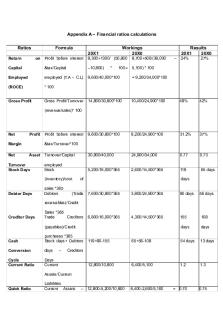
Appendix A FOR ASSESSMENT 1
- 2 Pages

Rules for naming compounds
- 2 Pages

all rules for 233
- 15 Pages

Game Rules for cricket
- 6 Pages

FM
- 3 Pages
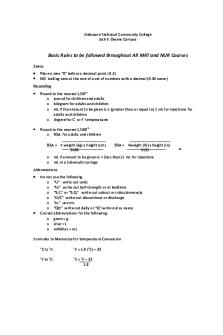
Math Rules for Nursing
- 2 Pages

Rules FOR Significant Figures
- 2 Pages
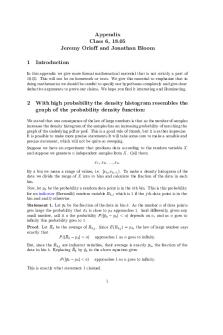
Appendix
- 4 Pages

Immigration Final
- 5 Pages

Immigration Outline
- 73 Pages
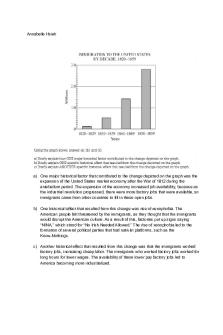
Immigration SAQ
- 1 Pages
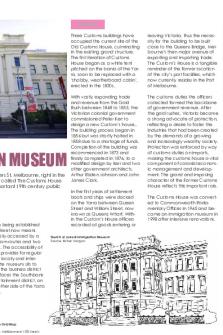
Immigration museum
- 2 Pages
Popular Institutions
- Tinajero National High School - Annex
- Politeknik Caltex Riau
- Yokohama City University
- SGT University
- University of Al-Qadisiyah
- Divine Word College of Vigan
- Techniek College Rotterdam
- Universidade de Santiago
- Universiti Teknologi MARA Cawangan Johor Kampus Pasir Gudang
- Poltekkes Kemenkes Yogyakarta
- Baguio City National High School
- Colegio san marcos
- preparatoria uno
- Centro de Bachillerato Tecnológico Industrial y de Servicios No. 107
- Dalian Maritime University
- Quang Trung Secondary School
- Colegio Tecnológico en Informática
- Corporación Regional de Educación Superior
- Grupo CEDVA
- Dar Al Uloom University
- Centro de Estudios Preuniversitarios de la Universidad Nacional de Ingeniería
- 上智大学
- Aakash International School, Nuna Majara
- San Felipe Neri Catholic School
- Kang Chiao International School - New Taipei City
- Misamis Occidental National High School
- Institución Educativa Escuela Normal Juan Ladrilleros
- Kolehiyo ng Pantukan
- Batanes State College
- Instituto Continental
- Sekolah Menengah Kejuruan Kesehatan Kaltara (Tarakan)
- Colegio de La Inmaculada Concepcion - Cebu
![Immigration Rules Appendix FM [Limited Leave to Remain for Partners]](https://pdfedu.com/img/crop/172x258/m52y1mjzd52e.jpg)


